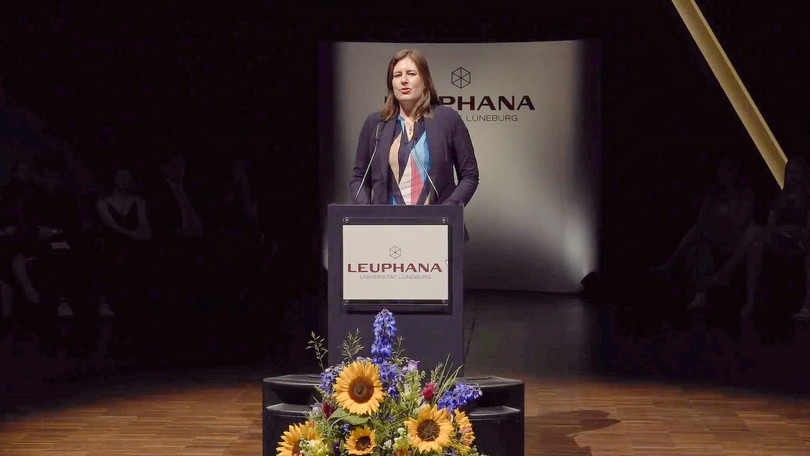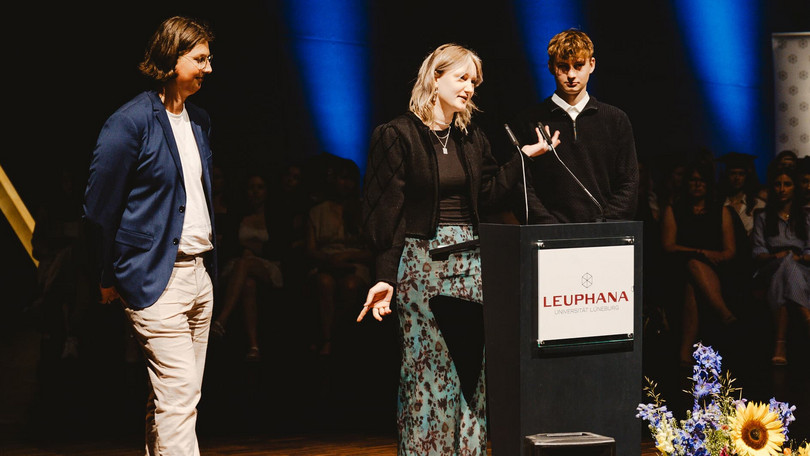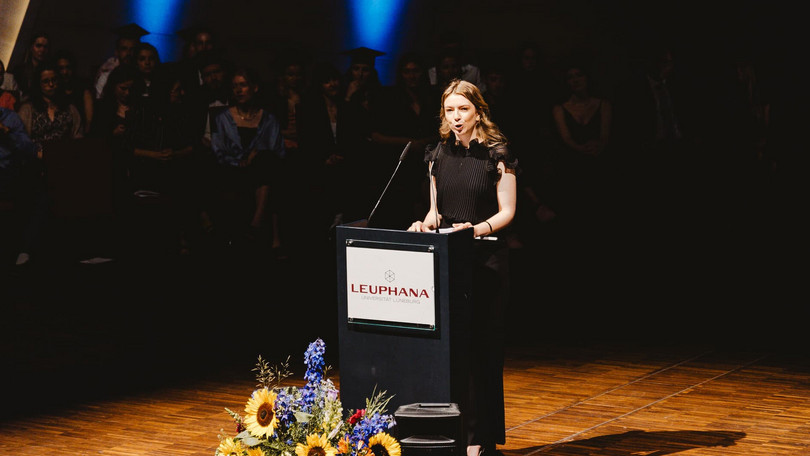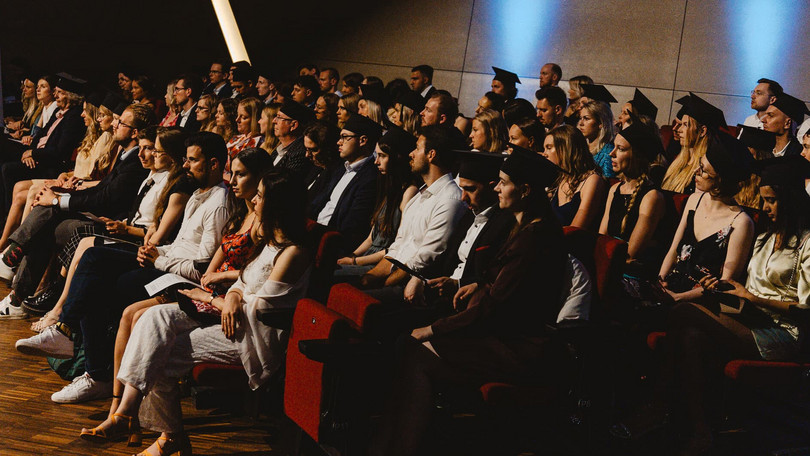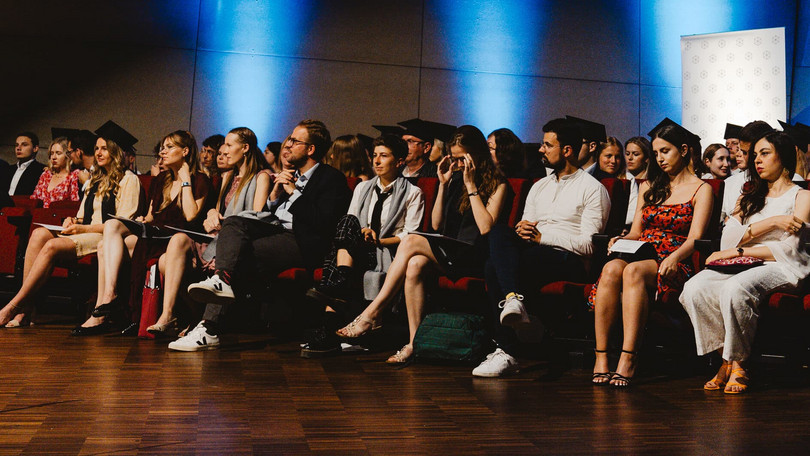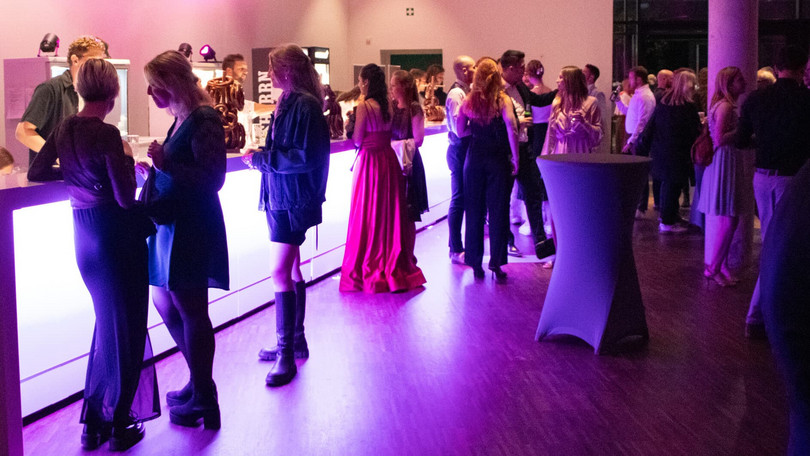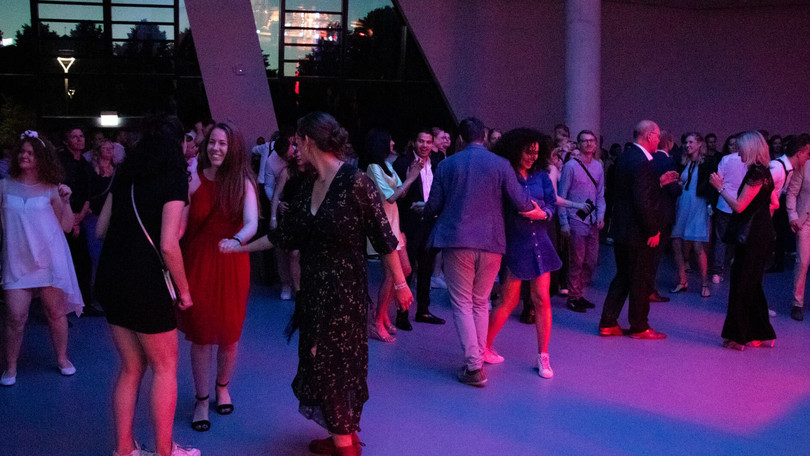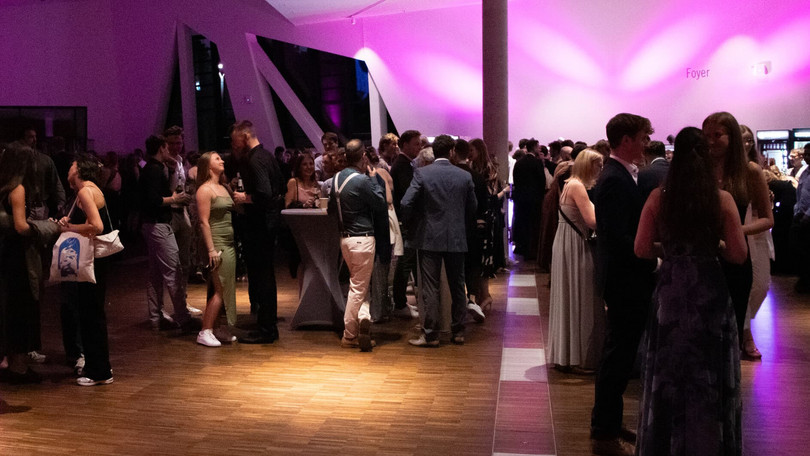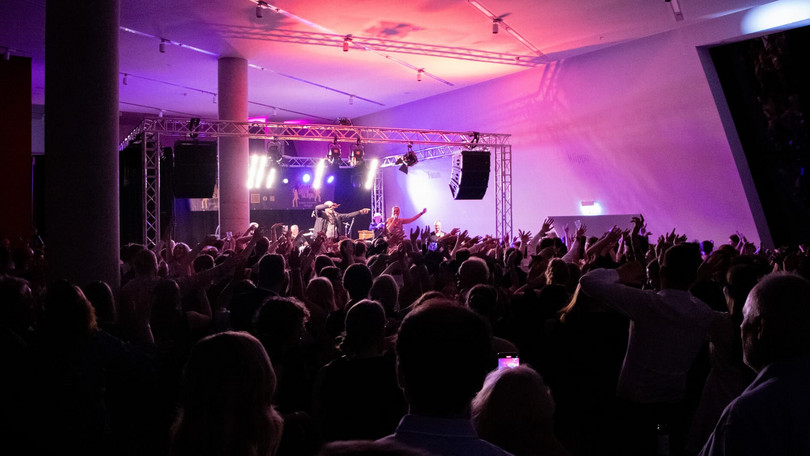"Stay curious and critical!" Graduation ceremony 2023
2023-06-21 Almost 400 graduates of the College, the Graduate School and the Professional School were festively honoured at the graduation ceremony in June 2023 and bid farewell to their new phase of life. Vice President Simone Abels, AStA speakers, student representatives, the Alumni Association and President Sascha Spoun congratulated the graduates and emphasised their academic achievements, especially under the difficult conditions of the pandemic. The traditional graduation ball was the highlight at the end.
In their speech, AStA spokespersons Nell Scheffler, Max Dietrich and Dominic Korn encouraged the graduates to become active: "Just like at the beginning of your studies, you may be asking yourself: What comes next? Where do I go from here? The most important thing is to simply get going! With the degree you have obtained here, you have an incredibly good prerequisite to follow your further path. Go out into the world, observe, stay curious and critical!"
Representing the students, Giulia Samantha Thomas spoke: "None of us expected that we would spend a large part of our studies alone and in our shared rooms. Not because Gen-Z is so lazy and selfish - a prejudice we should definitely get rid of today - but because the Corona pandemic has taken away a significant part of what makes time at university so valuable: the exchange with each other, long evenings on the Mensa lawn, the struggle for transformative space. So today is all the more a day of joy and gratitude, for the fact that life and learning are once again possible without restriction, and for the perseverance that got us here."
Regina Graß from the Alumni and Sponsors Association pointed out the importance of a lifelong network - especially in a world increasingly dominated by digital figureheads and social media, it is easy to forget the value of personal relationships. These, i.e. "how do I work and how do I work with others" proved to be much more significant in her postgraduate work experience than the question of what one does: "For people it is not so significant what they do, but why they do it. If we look at the relationship level, also or especially in the world of work, the topic of networking, being in contact with each other and exchanging ideas is particularly valuable. Remember back to the time of the Corona pandemic. With video seminars, no campus life. Many moved back home, were also spatially disconnected from Lüneburg. Especially in a time when the world is changing fast and new challenges are coming, it is more important than ever to have a strong network."
President Sascha Spoun took up the current topic of artificial intelligence. The discussion about AI is currently limited to rearguard action. Spoun suggests a more differentiated view: "The crucial thing about AI is not knowledge, but the ability to learn. And the assumption that AI will never be able to learn certain things is arrogant, precisely because there is no evidence of where the limits of what machines can learn lie. But that needn't worry you. Why not? Being worried about your education, your qualifications and thus your future only arises when you look at what AI could replace you in. I, on the other hand, want to look at what it could unleash in you." Reflection was one of the most important study goals and the fact that the graduates are holding their diplomas in their hands proves that they can reflect. "The confrontation with AI stimulates self-reflection: What am I doing differently from the machine? Why do I do it differently? What is better about it? Or even worse? Do I have to be able to do everything this machine can do? If not, why not? What don't I have to be able to do, don't I want to be able to do?" All these points, he says, were already encountered by graduates during their studies, such as the competence to deal with the surprising - for example, the lockdown that no one expected. "This period was a long dry spell that you bravely endured, you learned to cope, learned to develop strategies to be able to learn successfully despite the circumstances. You deserve credit for that." In times of change, he said, it is crucial to remain adaptable, to be able to motivate yourself and not resign. "AI can be used for the good of humanity or to its detriment. It is neutral at first. It depends on us humans what we make of it. And that means it depends on you, on your responsibility, because in the future you will be in positions that decide whether AI is used and for what purpose. You will also be part of a society that needs to be vigilant against misuse of AI."
The President expressed his respect for the graduates: "It is precisely this, the ability to take responsibility and, moreover, what goes hand in hand with this, the ability to be vigilant, that were important educational goals of your studies. Without vigilance, without the ability to analyse, responsibility overwhelms. You have proven that responsibility does not overwhelm you, because you have learned to form a considered judgement, because you have learned to look and listen, because you have learned to learn from criticism and because you have always considered what can be put into practice and how."
300 Master's graduates and 45 doctoral candidates from the Graduate School took part in the graduation ceremony. Simone Abels, Vice-President for the Graduate School, invited them to actively shape their future path: "Your degree opens doors for your future and gives you access to things that other people would not have otherwise gained. However, you now also have to go through these doors. And I wish you that you will find supporters who will help you decide which doors you will go through. That you sometimes consciously decide for yourself to let a door in or to close it again.

